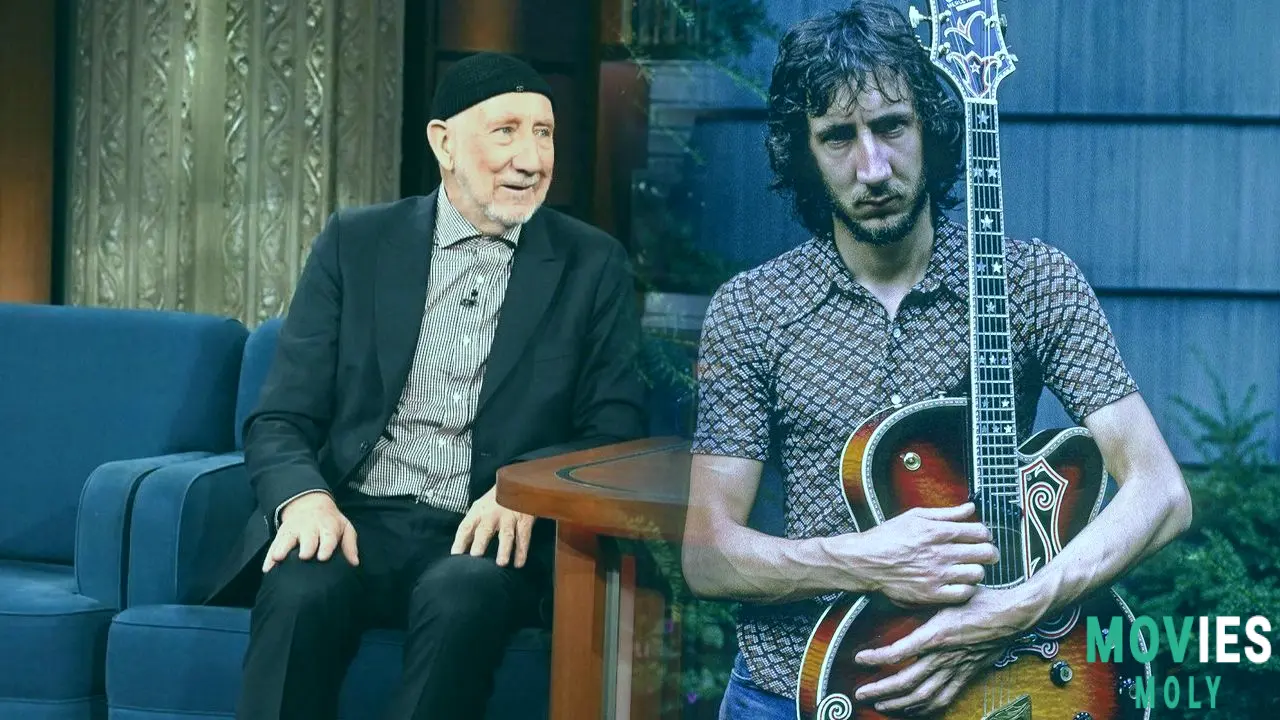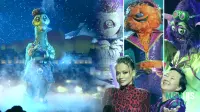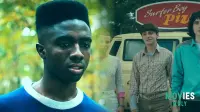Ever wonder what a rock legend, someone with decades of iconic songwriting under their belt, truly considers their best work? Pete Townshend, the creative force behind The Who, recently sat down with Stephen Colbert and didn't just answer that question, but he also opened up about his band's recent "farewell" tour and a brand-new ballet adaptation of a rock opera.
TL;DR: Quick Takes on Townshend's Latest Revelations
- Pete Townshend named his personal top five songs, a list featuring classics like "Love Reign O'er Me" and his politically charged "Won't Get Fooled Again."
- He confirmed that The Who's recent North American trek was a "genuine" farewell tour, detailing how focusing on Roger Daltrey's happiness transformed the experience.
- Townshend appeared on The Late Show with Stephen Colbert to promote Quadrophenia, A Rock Ballet, making its U.S. premiere in New York City.
On November 12, the 80-year-old rock icon joined Stephen Colbert on The Late Show, and during an extended segment posted to the program’s YouTube channel, Colbert asked the question every fan wants answered: "What are your top five Pete Townshend songs?" Townshend, known for his thoughtful insights, delivered a list that largely resonates with fans' favorites, yet offered a unique personal lens.
His top pick was the powerful ballad "Love Reign O'er Me," the dramatic closer from The Who's 1973 rock opera, Quadrophenia. Following closely was another Who power ballad, "Behind Blue Eyes," from their seminal 1971 album, Who's Next.
Interestingly, Townshend's third choice was his sole solo track on the list: "Let My Love Open the Door." This catchy tune became his biggest solo hit in the U.S., reaching No. 9 on the Billboard Hot 100 in 1980. His fourth selection brought us back to Who's Next with the anthem "Baba O'Riley." Townshend proudly mentioned its streaming success, stating he thought it had 1.5 billion Spotify streams. However, a quick check on November 13 showed the track had amassed "a bit over 700 million" streams. Still, that's an impressive number for a song from 1971!
Rounding out his top five was another epic from Who's Next, "Won't Get Fooled Again." This choice, he explained, carries a message he feels is especially relevant in today's world.
The Enduring Resonance of "Won't Get Fooled Again" in the Modern Era
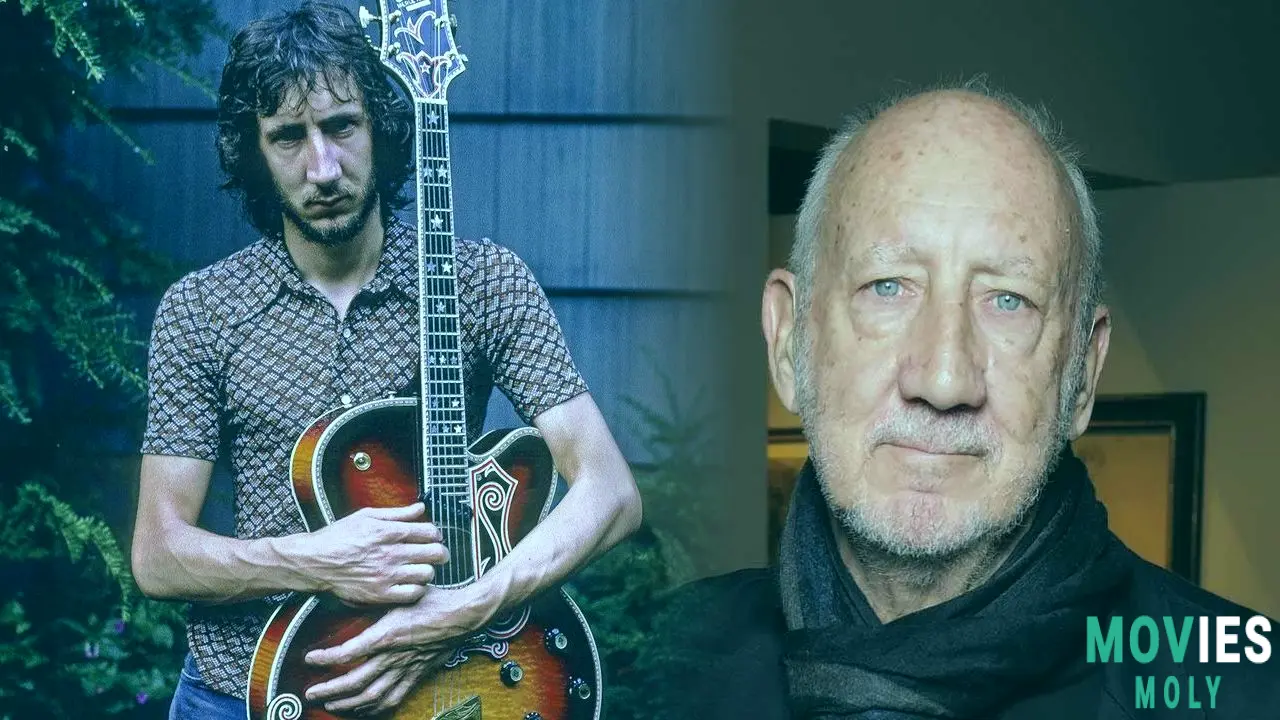
When discussing "Won't Get Fooled Again," Townshend delved into its timeless theme. He described it as a comment on "the fact that the people that we put in power always seem to end up breaking their promises." This sentiment, he clarified, isn't aimed at any current individual but at "everybody that there’s ever been."
Townshend pointed out that politicians often "promise stuff that they sort of know they have their fingers crossed behind them. They know that they can’t deliver some of the stuff that they promise.” He also cited Bob Dylan's "Don’t follow leaders… watch the parking meters" as an influence. The song, originally part of his unfinished Lifehouse project, was a reaction to being "bullied by a bunch of hippies" in the early 70s who urged him to join their revolution. His response? "No, I won’t… be part of your revolution. I think the revolution, if it comes, won’t need me to write for it."
Pete Townshend on "Won't Get Fooled Again":
"[The message] was, you know, as Bob Dylan said [in his song 'Subterranean Homesick Blues,'] 'Don't follow leaders… [watch the] parking meters.' It's a kind of a comment on the fact that the people that we put in power always seem to end up breaking their promises."
Source: American Songwriter, "The Who’s Pete Townshend Names the Top 5 Songs He’s Written While on ‘The Late Show’", November 13, 2025.
A Genuine Goodbye: The Who's Emotional Farewell Tour Experience
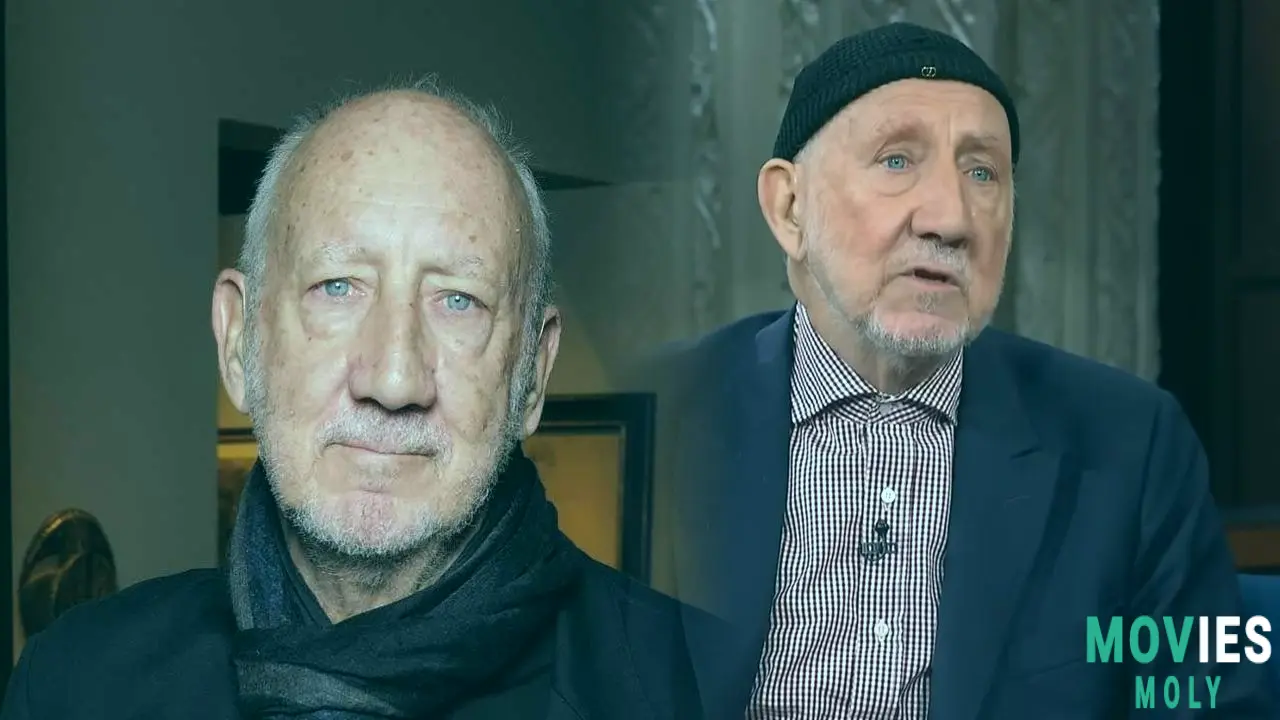
The Who recently wrapped up what they claim is their final North American tour, concluding in early October in Palm Springs, California. Townshend addressed previous "farewell" tours from the 80s, explaining his 1982 exit and the 1989 reunion prompted by financial need for a 25th-anniversary tour. This time, he insists, "the farewell tour is genuine," adding a humorous caveat: "we are going to end it after we’ve done as many shows as Elton John." He then quipped that after 22 shows, they only have 308 more to match Elton's 330-show Farewell Yellow Brick Road tour.
While Townshend has often expressed a dislike for touring, this last run was different. He revealed a shift in his approach: "I decided that I was going to make Roger (Daltrey) happy, which isn’t easy." He explained that Daltrey's vocal performance is a full-body, life-consuming effort, and Townshend consciously decided, "I must forget about myself and just do this for him, it could be the last thing we ever do together."
This intention worked wonders. Townshend loved the tour, recalling moments where he "got him laughing, I got him smiling, we were hugging and telling each other that we loved each other, which is not something that has happened until now, so it was a great tour for me." Even with Daltrey having two days off due to illness, the tour fostered a unique and openly affectionate bond between the two rock veterans.
From Accidental Destruction to Enduring Rock Stardom: The Who's Unexpected Genesis
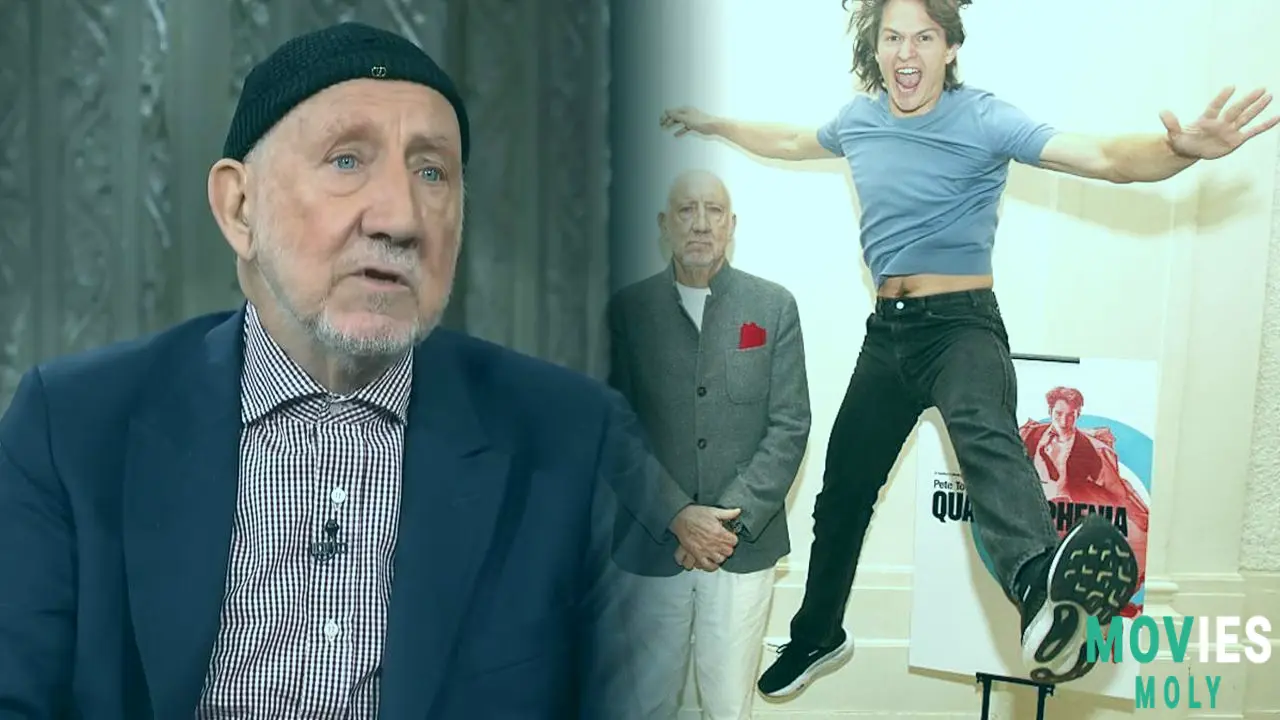
The Who's journey is far from straightforward. Townshend reflected on the band's origins in 1964, when he was just 16 and still attending art school. He initially thought the group would last "a couple of weeks, maybe a couple of months." It began when Roger Daltrey, then a school bully, approached him to join his band. Bassist John Entwistle was already on board. Townshend, seeking protection as a "scrawny guy," agreed.
His artistic aspirations lay elsewhere; he envisioned himself as a painter or sculptor. This lack of commitment led to a famous early moment: "I accidentally smashed my first guitar; I didn’t care. I thought, ‘Well, we’ll be gone in two months and I’ll just borrow some money from my dad and buy another one.’" The pivotal change came when he heard their first single, "I Can't Explain," on the radio. "I thought, Wow, I’m communicating. I have an audience. They were committed to what I was writing." This feeling solidified with the massive success of "My Generation," cementing his dedication to music.
The band's early days in the U.S. in 1967, at the height of the hippie era, were also colorful. Townshend noted The Who's style didn't "fit in very well" with the prevalent hippie scene. Performing four to five shows a day, he would smash a guitar at each one, leaving his mark. Remarkably, he claims to have painstakingly repaired them between gigs using a powdered glue called Cascamite, becoming "very good at putting guitars together."
Exploring Nuances and Counterpoints in Townshend's Narratives
It's worth considering a couple of perspectives on Townshend's reflections. Firstly, while an artist's personal "top songs" list is inherently subjective, some might expect it to diverge wildly from popular opinion. However, Townshend’s list largely aligns with many fan favorites and critically acclaimed tracks, indicating a strong connection between his personal sentiment and The Who's lasting impact. This blend suggests his deep involvement ensures the songs’ continued relevance for both him and his audience.
Secondly, the declaration of a "genuine" farewell tour might raise eyebrows among long-time fans, given The Who's history of multiple "final" tours. Townshend himself acknowledged this past. Yet, his emphasis on the profound shift in his relationship with Roger Daltrey during this particular tour lends weight to his claim. This emotional breakthrough marks a personal, not just logistical, finality that could make this goodbye truly different.
Example: The Resonance of a Rock Anthem
Imagine Sarah, a college student grappling with local political decisions. She’s feeling cynical about broken promises and grand statements. One evening, an old classic shuffles onto her playlist: The Who's "Won't Get Fooled Again." As Townshend’s powerful lyrics about disillusionment with leadership fill her headphones, she realizes the song, written decades ago, speaks directly to her current frustrations. It’s a stark reminder that some struggles are timeless, and that critical thinking, as Townshend suggests, remains ever-important, even when facing revolutionary zeal or political rhetoric.
What This Means for Fans: Practical Takeaways from Townshend's Insights
- Revisit the Classics with New Ears: Townshend's personal top five list gives you a great reason to dive back into Quadrophenia and Who's Next. Listen for the specific elements that might resonate with the songwriter himself.
- Appreciate the Depth of "Won't Get Fooled Again": Understanding the political and personal context behind this anthem enriches its meaning. It’s a powerful statement that remains startlingly current.
- Witness Quadrophenia in a New Light: For those in the New York area, the limited engagement of Quadrophenia, A Rock Ballet offers a unique opportunity to experience a classic rock opera through a fresh artistic medium.
- Cherish The Who's Final Chapter: Townshend's reflections on the farewell tour highlight the profound personal growth and genuine connection experienced. It offers fans a poignant perspective on what might truly be the end of an era for the legendary duo.
Frequently Asked Questions About Pete Townshend and The Who
When and where is Quadrophenia, A Rock Ballet showing? Quadrophenia, A Rock Ballet will have its U.S. premiere with a limited engagement from November 14-16, 2025, at New York City Center in Manhattan. Tickets are available online via NYCityCenter.org. What inspired Pete Townshend to write "Won't Get Fooled Again"? Townshend wrote the song as a commentary on the recurring cycle of political leaders breaking promises and as a defiant response to being pressured by hippies in the early 1970s to join a revolution he felt didn't need him. Was The Who's recent North American tour truly their last? According to Pete Townshend, this recent tour was a "genuine" farewell. While he jokingly mentioned needing to do many more shows to match Elton John's farewell tour length, his serious reflections on making Roger Daltrey happy and their newfound emotional connection suggest a true concluding chapter for their touring career. Which albums feature most of Pete Townshend's top 5 songs? Three of his top five picks – "Behind Blue Eyes," "Baba O'Riley," and "Won't Get Fooled Again" – are from The Who's 1971 album, Who's Next. "Love Reign O'er Me" is from 1973's Quadrophenia, and "Let My Love Open the Door" is from his 1980 solo album, Empty Glass. Sources- Matt Friedlander, "The Who’s Pete Townshend Names the Top 5 Songs He’s Written While on ‘The Late Show’", American Songwriter, November 13, 2025.
- Will Simpson, "Pete Townshend thought the Who would last two weeks. This was the moment that changed his mind", Guitar World, November 14, 2025.
- Will Simpson, "Pete Townshend popped in to Stephen Colbert’s show this week to, amongst other things, reminisce about the first time The Who came to the States", MusicRadar, November 14, 2025.
- Fraser Lewry, "'I was bullied in 72 by a bunch of hippies': Pete Townshend names his five favourite Pete Townshend songs", Classic Rock, November 14, 2025.
- Cliff Pinckard, "Pete Townshend names his 5 favorite Who songs, including ‘Love, Reign O’er Me’", cleveland.com, November 14, 2025.
- Joe Taysom, "Pete Townshend confirms The Who’s farewell tour was a “genuine” goodbye", Far Out Magazine, November 13, 2025.
- Craig Rosen, "Pete Townshend Names His 5 Favorite Songs, Explaining Why the Last One Is ‘Most Applicable to the Modern World’", Parade, November 14, 2025.
- Bruce Henne, "Pete Townshend Guests On The Late Show With Stephen Colbert", hennemusic, November 14, 2025.

